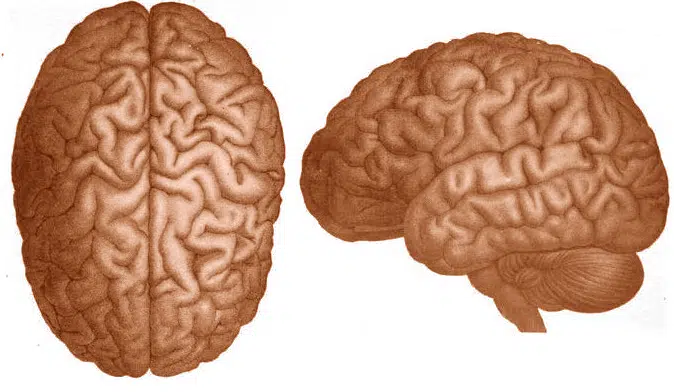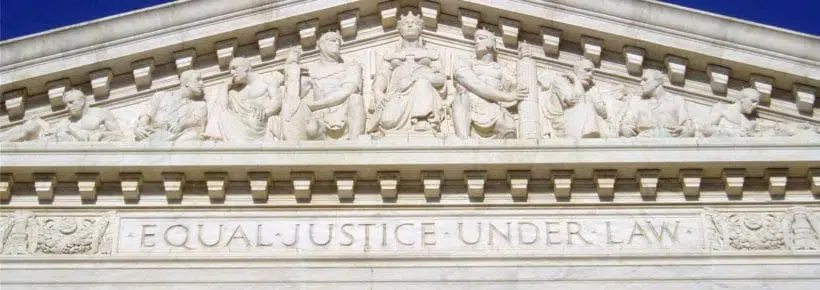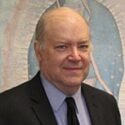Homosexual activists often mention that the medical profession—specifically psychiatrists and psychologists—believe that homosexuality is a “normal human sexual response.” In support of this assertion, they talk about how the American Psychological Association officially removed homosexuality from its list of “mental disorders” in 1973, and that the American Psychiatric Association also classifies homosexuality as normal.

What they do not mention, of course, is that these organizations did not base their changes of opinion on scholarly studies or new scientific evidence. Their acceptance of homosexuality was purely political, the result of a relentless campaign of deception, intimidation, outright violence and unethical collusion between elitist APA/APA committees and activist homosexual groups.
History of the APA on Homosexuality
In 1968, representatives of homosexual rights groups approached leading psychiatrists and psychologists and began to lay the groundwork for the reclassification of their lifestyle as a normal and healthy manifestation of human sexuality. These activists recognized that such a move was necessary if they were to win public acceptance. After all, society would not look very kindly upon civil rights lobbying done by groups whose members were recognized as “mentally disordered” by the medical profession.
In the three years during which the American Psychological Association’s “Homosexuality Task Force” was deliberating, it collaborated with numerous homosexual activist groups, including the Gay Activist’s Alliance, the Mattachine Society, and the Daughters of Bilitis, while systematically ignoring organizations with views that disagreed with the activists.
At about the same time, Abram Kardiner, former Professor of Psychiatry at Columbia University, revealed, “A powerful lobby of ‘gay’ organizations has brought pressure on the American Psychiatric Association to remove homosexuality from the category of aberrancy. This is only one facet of the tidal wave of egalitarianism and divisiveness that is sweeping the country.”1
Alfred Kinsey’s colleague Paul Gebhard revealed that anyone who believed that homosexuality was a disorder was systematically excluded from being a member of the APA/APA Homosexuality Task Forces or from even being able to present his views or evidence to them. In other words, the Task Forces only permitted those people who shared their viewpoint to voice an opinion, so their conclusions were preordained.

But the homosexual activists did not focus on the APA/APA organizations alone; they intimidated psychiatrists and psychologists all over the nation. While the Homosexuality Task Forces were preparing their reports, anyone who dared present documentation that homosexuality was a psychological disorder anywhere in the country was shouted down and even physically attacked at public forums or at local and national meetings of mental health professionals.1
For example, at the 1971 American Psychiatric Association national convention, hordes of homosexual activists screamed at “anti-gay” speakers. Activist Frank Kameny seized the microphone in the middle of one doctor’s talk and shouted, “Psychiatry is the enemy incarnate. Psychiatry has waged a relentless war of extermination against us. You may take this as a declaration of war against you.”2
Gangs of homosexual activists roamed the exhibit hall and destroyed any literature they deemed not sufficiently “gay friendly.” One psychiatrist wrote:
Using forged credentials, gay activists gained access to the exhibit area and, coming across a display marketing aversive conditioning techniques for the treatment of homosexuals, and demanded its removal. Threats were made against the exhibitor, who was told that unless his booth was dismantled, it would be torn down. After frantic behind-the-scenes consultations, and in an effort to avoid violence, the convention leadership agreed to have the booth removed.2
From this moment onward, the American Psychiatric Association was dominated by homosexual threats, violence and intimidation.
This systematic campaign of violence, propaganda and intimidation began to pay off in 1972. The National Institute of Mental Health’s (NIMH) Homosexuality Task Force Final Report parroted Alfred Kinsey’s discredited finding that “exclusive heterosexuality” and “exclusive homosexuality” were “sexual extremes,” and that most people were basically bisexual.3
The NIMH report in turn exerted a great deal of influence on both APAs. In order to make its final report appear scientific, the American Psychiatric Association’s Homosexuality Task Force sent a letter to all APA member psychiatrists. This letter did not ask whether or not homosexuality should or should not be declared “normal.” It directed all members to vote that homosexuality was equivalent to normal sexuality. The letter did not, of course, reveal the fact that it was written and funded by the National Gay Task Force (NGTF). One of the letter’s signers, in fact, later confessed that he knew that such knowledge would have been the “kiss of death” for a pro-homosexual vote.2
Despite the atrocious amount of manipulation behind the vote, the psychiatrists declared homosexuality normal by only a very slim margin. Subsequently, the APA eliminated homosexuality as a mental disorder from the 1973 edition of its Diagnostic and Statistical Manual (DSM).
APA member Dr. Henry W. Riecken wrote a scathing dissent in the appendix to the NIMH report entitled “Detailed Reservations Regarding the Task Force Recommendations on Social Policy”:
It is as if they [the Task Force] said, “Here is a phenomenon about which we know almost nothing and about which there is a great deal of anxiety and concern; therefore, let us suggest a major revision in public policy for dealing with this phenomenon.” I cannot escape the belief that this is an utterly unreasonable conclusion to draw from the sea of ignorance and misinformation in which we find ourselves.
The essential point is that the change in the position of the APA on homosexuality was not brought about as a result of a careful regime of scholarly research and study; it was a blatantly political move, a pre-determined vote on the status of a mental illness. Furthermore, this vote was undertaken in a pervasive climate of deception and intimidation.

At no time before or since has any psychological or psychiatric professional group ever addressed any mental health question in this grossly unprofessional manner.
What Psychiatrists Really Thought
It is fascinating to see what psychiatrists really think about homosexuality when they are free from intimidation, threats of violence and political pressure. What was the true majority opinion of the APA on homosexuality?
Almost simultaneously with the 1972 NIMH report, the New York County District Branch of the APA’s Homosexuality Task Force produced a second report. According to APA member Charles Socarides, M.D., the document concluded that homosexuality was a psychosexual disorder—but that it deserved civil rights anyway.1
It is even more revealing to examine the results of polls of psychiatrists taken since 1973 regarding the issue of homosexual orientation.
The original “voting” letter distributed by the APA Homosexuality Task Force in 1973 was answered by only about one-quarter of the recipients, obviously leading to a severe “volunteer bias” which led to pro-homosexual results. It is quite certain that, if all of the APA members had returned their “ballots,” homosexuality would have remained a mental disorder in the view of the organization.
A later series of private surveys—which could be answered confidentially and without fear of retaliation—showed that two-thirds of APA member psychiatrists regarded homosexuality as abnormal despite the parent organization’s switch.1
More specifically, in 1977, four years after the APA flip-flop, the journal Medical Aspects of Human Sexuality revealed that it had polled 2,500 psychiatrists on their view of what “current thinking on homosexuality” was, and, by a lopsided margin of 69% to 18% (nearly four to one, with 13% undecided), the respondents answered, “Homosexuality was usually a pathological adaptation as opposed to a normal variation.”4
This is certainly a more accurate poll than the original APA letter, which was prey to all of the “volunteer bias” that self-selected populations exhibit. However, by comparison, the 1977 survey was truly random, and so its results should certainly be given more weight.

Due to the extreme political pressure exerted upon both the American Psychological Association and the American Psychiatric Association, no extensive public discussion on the mental pathology of homosexuality has been conducted since 1977.
Final Thoughts
Both the American Psychological Association and the American Psychiatric Association have become completely politicized organs of the left and endorse the entire range of rhetoric of the culture of death without exception. For example, both endorsed abortion even before the 1973 Supreme Court decision Roe v. Wade, and both have stated that post-abortion syndrome is non-existent.
The American Psychological Association has gone far beyond the legitimate practice of psychology and is now engaged in blatant political activism papered over with a gossamer veneer of medical terminology. According to one paper published in the APA’s Psychological Bulletin, political conservatism is strongly associated with “dogmatism,” “intolerance,” “close-mindedness,” “fear,” “anger,” “pessimism,” “self-interest,” “endorsement of inequality,” “terror management,” “lower self-esteem,” “mental rigidity,” “aggression,” “disgust” and “contempt.”5
Of course, there appears to be no attempt by the APA to chronicle the many possible psychological problems associated with liberalism. That would be an intolerable conflict of interest.
+ Endnotes
[1] Charles Socarides, M.D. “The Sexual Deviations and the Diagnostic Manual.” American Journal of Psychotherapy, July 1978.
Also see Arno Karlen. “Homosexuality: The Scene and Its Students.” The Sociology of Sex. James Henson and Edward Sagarin, editors (New York City: Schocken Publishers), 1978.
[2] Ronald Bayer. Homosexuality and American Psychiatry: The Politics of Diagnosis (New York City: Basic Books), 1981, page 105.
[3] John M. Livergood, M.D. (Editor). National Institute of Mental Health Task Force on Homosexuality: Final Report and Background Papers (Washington, D.C.: United States Government Printing Office), 1972, page 2 (Introduction).
[4] Medical Aspects of Human Sexuality, November 1977.
[5] John T. Jost, Jack Glaser, Arie W. Kruglanski and Frank J. Sulloway. “Political Conservatism as Motivated Social Cognition.” Psychological Bulletin (journal of the American Psychological Association), 2003, Vol. 129, No. 3, 339—375.
Dr. Brian Clowes has been HLI’s director of research since 1995 and is one of the most accomplished and respected intellectuals in the international pro-life movement. Best known as author of the most exhaustive pro-life informational resource volume The Facts of Life, and for his Pro-Life Basic Training Course, Brian is the author of nine books and over 500 scholarly and popular articles, and has traveled to 70 countries on six continents as a pro-life speaker, educator and trainer.








And so now it’s come to an occupant of the White House proclaiming “Happy Pride month! Happy Pride year!! Happy Pride life!!!” The way I see it we as a society are beyond question in the 11th hour. If a person does not stand for something, they fall for anything.
Thank you for the truth.
They have no right to shame others who are very disgusted by the topic of anal, oral and, lesbian sex. Every person has their own degree of what they can agree to and what is offensive. No matter the sexual sin, everyone can receive redemption through repentance, which reveals we are priceless in Christ’s eyes. That being said, the sin condemns those who cling to it. If you don’t agree, then we shall see. So, I end my own shared opinion. Let’s keep our sexual preferences to ourselves, shall we? Thank You! Have a great life!
I agree with your first two lines Miguel. I would like for us to be clear and not muddle language.
We may be disgusted be the acts of others which repulse us. We may have shame for acts of our own which we regret. Blame and sin may not (or may not) be ours to assign but only we can seek our own redemption, be it sexual or other.
Thank God that there are people like you to speak up. Keep up the good work!